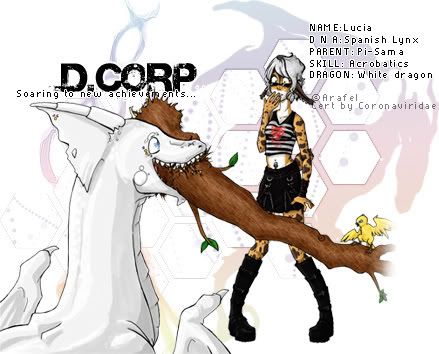|
|
|
|
|
|
|
|
|
 Posted: Thu Apr 20, 2006 4:10 pm Posted: Thu Apr 20, 2006 4:10 pm
This log belongs to Lucia and Pi-sama
Do not post unless previously okayed by owner. Those who do without permission will be blacklisted from the shop.
|
 |
 |
|
|
|
|
|
|
|
|
|
|
|
|
 Posted: Fri Apr 21, 2006 4:04 am Posted: Fri Apr 21, 2006 4:04 am

Table of contest
One - D-Corp Post
Two - Table of Contents
Three - Rules
Four- Events
Five- About Lucia
Six - The Dragon
Seven - Friends
Eight - Family Members
Nine - The House
Ten - Photographs
Eleven - Possessions
Twelve - Animal Information
Thirteen - Classes
|
 |
 |
|
|
|
|
|
|
|
|
|
|
|
|
|
|
|
 Posted: Fri Apr 21, 2006 4:18 am Posted: Fri Apr 21, 2006 4:18 am

Rules
1. Follow the Gaia ToS.
2. Follow all D-corp rules and guidelines.
3. Don't steal the art
4. Only post here if you own a D-corp kid, are dropping off a gift , or work for D-corp.
5. I hold the right to edit/change these rules as necessary.
|
 |
 |
|
|
|
|
|
|
|
|
|
|
|
|
 Posted: Fri Apr 21, 2006 4:54 am Posted: Fri Apr 21, 2006 4:54 am

Events
14-09-2006 Tiamat arrive and Lucia is Preteen O_o
23-06-2006 Lucia grow up to child
19-04-2006 Lucia arrives to home
|
 |
 |
|
|
|
|
|
|
|
|
|
|
|
|
|
|
|
 Posted: Fri Apr 21, 2006 5:23 am Posted: Fri Apr 21, 2006 5:23 am

About Lucia
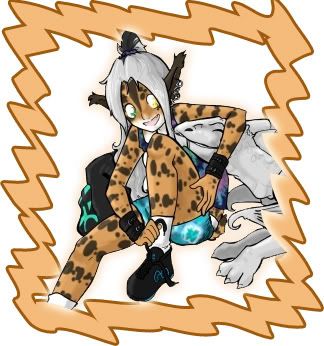
Name: Lucia
Name Origin: Spanish
Name Meaning:Day light
Gender: Female
Age: 12 years
Animal: Spanish Lynx
Hair Color: Silver wiht tuft in black
Eye color: Left yellow and right light green
Skin color: Light brown with spots in dark brown
Personality: Tomboy, smart and cheerful
Likes: Bunnies, Acrobatics and hiding games
Dislikes: Screams, Vegetables and Liars.
|
 |
 |
|
|
|
|
|
|
|
|
|
|
|
|
 Posted: Sat Apr 22, 2006 1:30 am Posted: Sat Apr 22, 2006 1:30 am
 The Dragon The Dragon
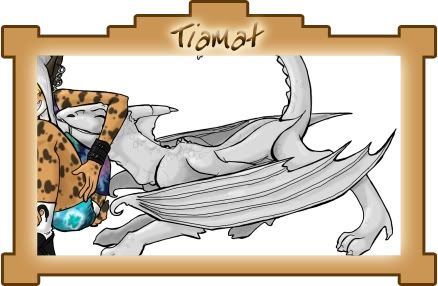
Name:Tiamat
Age: Wrymling
Dragon's Element: Ice.
Egg needs:Must be burried in snow, encased in ice, or kept at temps below 0 degrees.
Egg size:Tiny egg. 1ft, 10lbs.
Fighting style: Sudden assault, focusing on one opponent at a time.
Skills: n/a
Spells: n/a
General Attitude: unkown
Likes:
Cold
wet
diamonds
sparkly items
Dislikes:
Environment:Arctic areas
Sub-Races:
|
 |
 |
|
|
|
|
|
|
|
|
|
|
|
|
|
|
|
 Posted: Sat Apr 22, 2006 1:34 am Posted: Sat Apr 22, 2006 1:34 am
 Friends Friends
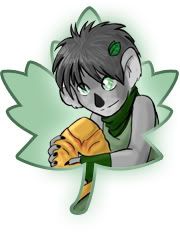
Quote: Luc�a first friend, they meet in Monkey Bars and Luc�a liked her, Luc�a thinks that she is very amusing and nice. She love climbing with Alaqua heart
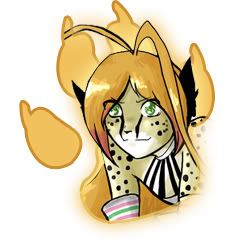
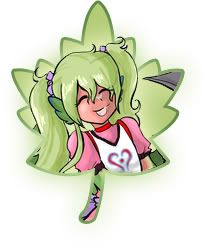
Quote: Nice girl, she help my to choose goodies in the Candy shop. she has feathers and they are green one of my favorite colors 4laugh .

Quote: Snake-Boy, coolllllll we were together in the swimming class and together with Medusa we picked up many spheres and it was very amusing, a little quiet but I like him 4laugh
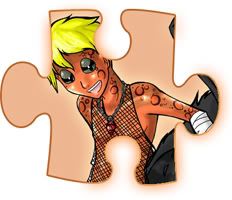
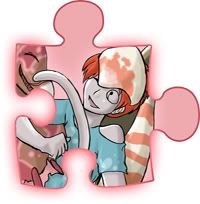
|
 |
 |
|
|
|
|
|
|
|
|
|
|
|
|
 Posted: Sat Apr 22, 2006 1:47 am Posted: Sat Apr 22, 2006 1:47 am
|
|
|
|
|
|
|
|
|
|
|
|
|
 Posted: Sat Apr 22, 2006 1:52 am Posted: Sat Apr 22, 2006 1:52 am
|
|
|
|
|
|
|
|
|
|
 Posted: Sun Apr 23, 2006 5:03 am Posted: Sun Apr 23, 2006 5:03 am
|
|
|
|
|
|
|
|
|
|
|
|
|
 Posted: Sun Apr 23, 2006 7:26 am Posted: Sun Apr 23, 2006 7:26 am
 Possessions Possessions
 Lucia's Diary  Swimming Class Gift
|
 |
 |
|
|
|
|
|
|
|
|
|
|
|
|
 Posted: Sun Apr 23, 2006 7:29 am Posted: Sun Apr 23, 2006 7:29 am
 Animal Information Animal Information
Spanish Lynx
Common Name: Iberian Lynx, Spanish Lynx
Kingdom: Animalia
Phylum: Chordata (Vertebrata)
Class: Mammalia
Order: Carnivora
Family: Felidae
Genus: Felinae (Lynx)
Species: pardina
Misc.: The debate continues whether or not the Iberian Lynx is in fact a separate species from the Canadian and Siberian Lynxes, or merely a subspecies. Experts are evenly divided on this subject, but for now, it remains a separate species based on its marked adaptive differences for prey capture. The name Lynx comes from the Greek word "to shine," and may be in reference to the reflective ability of the cat�s eyes.
Size and Appearance: The Iberian Lynx is similar in its appearance to the Eurasian Lynx, but about half its size. Adult males weigh on the average 27.5 pounds and the females average 20. The fur is typically grayish, with tints varying from yellowish to rusty and is distinctly spotted. They have a flared facial ruff, long prominent black ear tufts, and long hind legs with a short black tipped tail. Their large, wide-spreading feet are covered in fur, which act like snowshoes, and are effective in supporting the cat�s weight on the snow. They are often confused with their smaller feline cousins the Bobcat, but can be easily distinguished by their tail tips. The tail of the Lynx looks as though it was dipped in an inkwell being black all the way around, whereas the Bobcat�s tail appears to have been painted black on top and white on the bottom.
Habitat: These Lynx are found to inhabit scrub vegetation, Mediterranean woodland and maquis thicket.
Distribution: The Iberian Peninsula.
Reproduction and Offspring: After a gestation of approximately 60 days, females produce a litter of 2-3 kittens. They reach independence by the age of 7-10 months, but will remain in their natal territory until around 20 months old. Sexual maturity for this cat is directly related to demographic and environmental factors, and most females will not reproduce until a territory has been secured. This may occur as early as her first winter, or as late as 5 years, or possibly never at all.
In the wild, Iberian Lynx have lived up to 13 years.
Social System and Communication: Unknown. Believed to be the same as the Eurasian Lynx, which would indicate a solitary animal except for mothers and kittens.
Hunting and Diet: Like the Canadian Lynx, the mainstay of this Lynx�s diet is the rabbit. During the winter months when rabbit populations are low, it will switch its prey base to red deer, fallow deer, mouflon and ducks. The energy requirements for this Lynx have been found to be 1 rabbit per day. These animals are primarily nocturnal, except during the winter months when they have diurnal activity peaks.
Principal Threats: The largest threat facing this Lynx is habitat destruction and the destruction of its prey base. The prey also suffered a major blow when an introduced disease � poxvirus myxomatosis � to which the European Hare had no natural immunity and was nearly decimated. By the time they started building a resistance to this disease and the numbers started to recover, a new disease �viral hemorrhagic pneumonia - took its place and killed a large number of adult rabbits. This cat also suffers at the hands of man, frequently being killed by traps and snares set for rabbits, and by being hit by cars as the number of roads increase. The Spanish Government is now in the process of developing a national conservation effort to save the Iberian Lynx.
Status: CITES: Appendix I. IUCN: Endangered.
*****Animals are also ranked by their level of vulnerability on a global level, which in essence ranks their extinction risk. They are ranked from Category 1 (critical) to Category 5 (common-low conservation priority). The Iberian Lynx is the ONLY cat listed as Category 1, with less than 1200 animals remaining in the wild. Of that 1200, only 300-350 are believed to be breeding females.
Felid TAG recommendation: Spanish lynx (Lynx pardinus). Considered one of the rarest species on earth, the Spanish lynx suffers from having disjunct populations, continued habitat loss and accidental death from trappers and automobiles. Although the Spanish are making plans to initiate a captive-breeding program, it is not likely that this species will ever become available for export to North America.
|
 |
 |
|
|
|
|
|
|
|
|
|
|
|
|
|
|
|
 Posted: Sun Apr 23, 2006 7:30 am Posted: Sun Apr 23, 2006 7:30 am
|
|
|
|
|
|
 |
|
|
|
|
|
|
